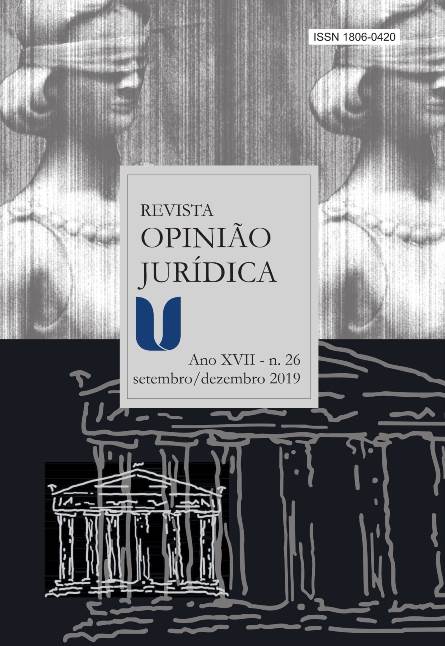RELAÇÕES LABORAIS E LIMITES JURÍDICOS AO ACESSO E USO DAS INFORMAÇÕES GENÉTICAS DO EMPREGADO
DOI:
https://doi.org/10.12662/2447-6641oj.v17i26.p63-82.2019Keywords:
Informação genética, Relações laborais, Direitos fundamentais, Intimidade, IgualdadeAbstract
Artigo destinado à análise dos limites jurídicos conformadores do uso da informação genética no âmbito das relações laborais. Como premissa, partiu-se de uma análise panorâmica sobre o acesso e o uso da informação contida no DNA conforme os padrões atuais da Ciência, considerando os pretensos benefícios e os riscos agregados. Como objetivo central da pesquisa, buscou-se identifi car as balizas previstas na legislação em vigor que fundamentam a necessidade de contingenciar o uso da informação genética pelo empregador nas relações pré-contratuais, contratuais e pós-contratuais de trabalho. O estudo em voga tem como justificativa a necessidade de sopesar adequadamente a proteção ao trabalhador em condição de vulnerabilidade face à possibilidade de que sua informação genética possa ser arbitrariamente acessada e utilizada, culminando na violação de conteúdos constitucionalmente fundamentais como a igualdade e a intimidade. Optou-se pela perspectiva metodológica hipotético-dedutiva, tendo em vista adequar-se melhor ao objetivo apontado, a partir da construção de pesquisa de natureza bibliográfica.
Published
How to Cite
Issue
Section
License
CESSION OF COPYRIGHTS
The submission of articles to analysis for publication on Opinião Jurídica implies the author(s) transfers copyrights to Centro Universitário Christus – UNICHRISTUS for reproduction, publicizing, distribution, printing and publication, according to the Publication Norm 414R, Opin. Jur., Fortaleza, year 12, n. 16, p.1-414, Jan./Dec. 2014, costs to be bore by UNICHRISTUS, in whatever format or means that may or shall exist, in accordance to articles 49 and following of Federal Law 9.610/98.
1. In ceding copyrights, the author(s) agrees to do so in exclusivity, free of charge and for the totality of the work.
2. UNICHRISTUS may make the work, in its entirety or in parts, available for scholarly purposes, without altering its contents, except for small corrections that are deemed necessary.
3. The cession of copyrights is valid in all countries and for versions of the material in its original language or translated into a foreign language.
RESPONSIBILITY FOR THE CONTENT
By submitting an article, the author(s) declare to have sole responsibility for the content of the piece and is(are), therefore, responsible for any judicial or extrajudicial measures referring to it.
1. In case of joint authorship, all authors are considered collectively responsible, except when proved otherwise.


















